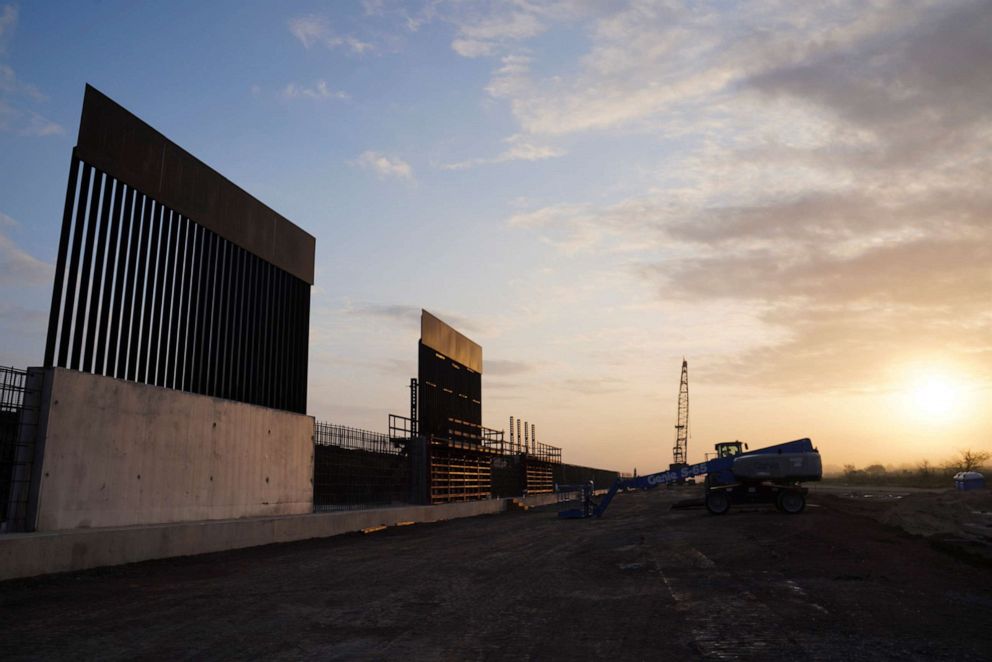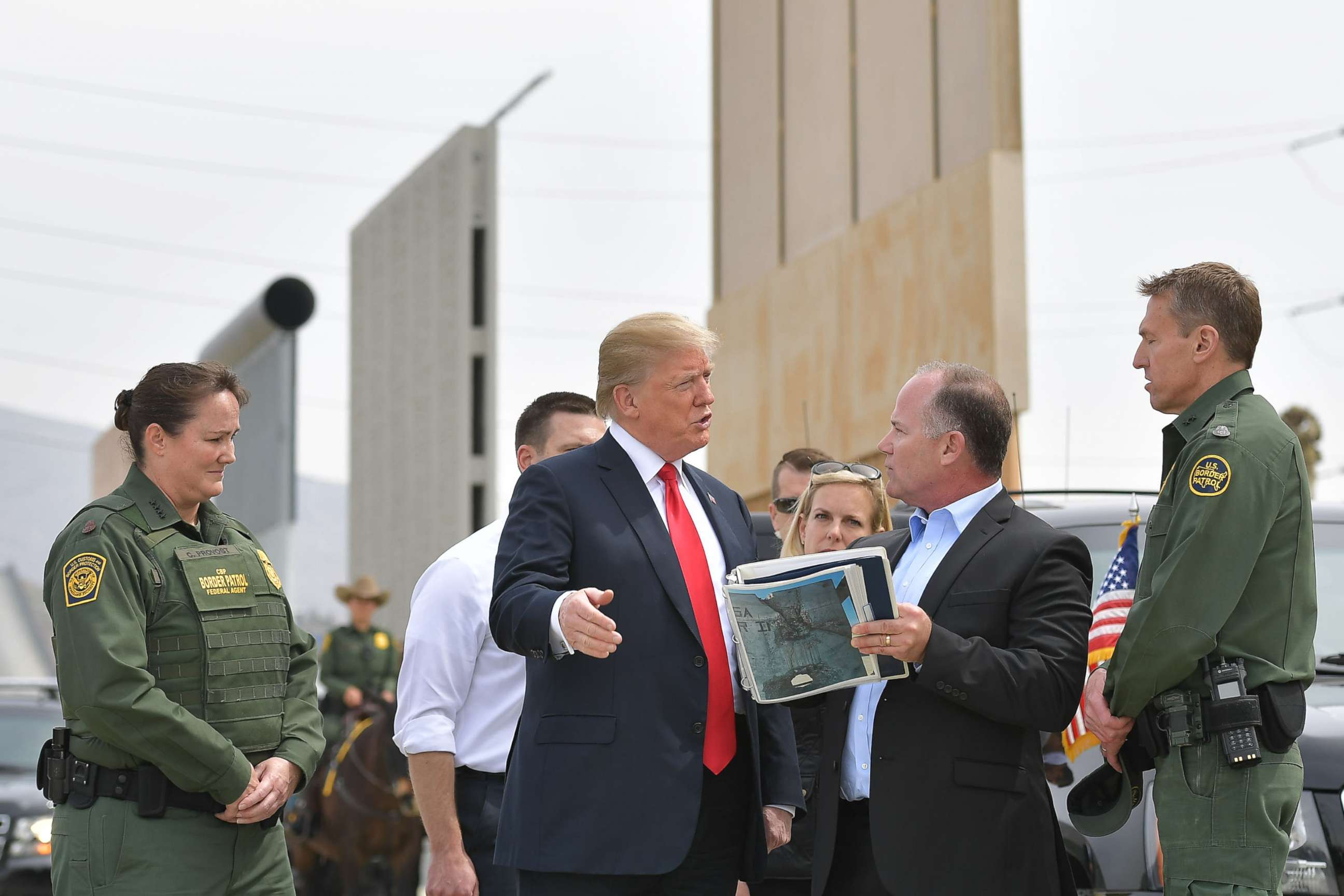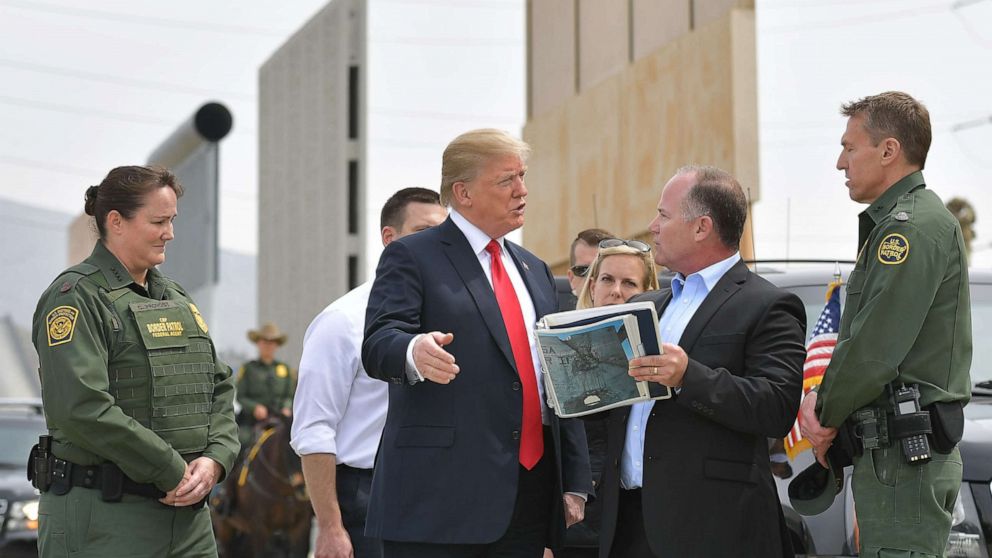Trump praises appeals court decision that military funds can be used for border wall
President Donald Trump declared victory on Thursday following a federal appeals court ruling that allows his administration to use $3.6 billion in military construction funds to build a wall along the southern border.
The Jan. 8 ruling overturns a federal district judge's order that blocked the funding, but is only a temporary win for Trump pending further appeals. Democrats have consistently fought his efforts to build a wall along the U.S.-Mexico border -- bringing on legal action when the administration first made attempts to sidestep congressional objections and pay for the wall using the military funds.
Trump tweeted Thursday morning that the "Entire Wall is under construction or getting ready to start!"
"The United States Court of Appeals for the Fifth Circuit has lifted an illegitimate nationwide injunction entered by a lower court, and in doing so has allowed vital border wall construction to move forward using military construction funds," Press Secretary Stephanie Grisham released in a statement Thursday morning. "This is a victory for the rule of law. We are committed to keeping our borders secure, and we will finish the wall."
The 5th U.S. Circuit Court of Appeals in New Orleans granted a stay in a 2-1 ruling, putting on hold a lower court's ruling from December in which U.S. District Judge Haywood Gilliam issued a nationwide injunction on Trump using military construction funds for his border wall. As Gilliam said in his written statement, the executive branch evading congressional approval to fund its border wall played a large role in his ruling.
In Wednesday's ruling, an appointee of former President Barack Obama dissented, while an appointee from former President Ronald Reagan paired with a Trump administration appointee ruled in favor of using the funds.
The 5th Circuit referenced a previous U.S. Supreme Court decision in which the highest court in the land ordered a stay on an injunction issued by the 9th U.S. Circuit Court of Appeals, ultimately allowing the administration to use military funds to build part of the border wall.

The Trump administration -- as well as his re-election campaign -- has made border security one of its key priorities and talking points. Last year, Trump declared a national emergency at the border to secure funding after Congress passed a spending bill that did not fully fund the construction.
In a statement also released Thursday morning, Rep. Raul Grijalva, D-Ariz., said the Trump administration needs to consult with Native American tribal landowners before expanding construction in southern Arizona.
"The Trump administration is treating the Tohono O'odham Nation like a speed bump instead of a sovereign nation, just as it does with Native American communities across the country, in order to bulldoze opposition and get what it wants -- a wall to create division," Grijalva said.
While Congress has approved limited funding for wall construction in recent years, there are many Democratic members of Congress that don't support the administration's border wall efforts.
"Despite what the President may think, Article II does not mean that he can 'do whatever he wants'" House Speaker Nancy Pelosi said in a statement in December about the lower court's ruling.
She later added, the president's "plan to cancel military construction projects to pay for his ineffective, wasteful wall would have made America less safe by hurting our military readiness and stealing from military families."

In 2016, one of Trump's main campaign promises was to build the wall along the southern border -- a promise that has not yet been completed.
Trump administration officials pledged that by the end of 2020, the administration would build 450 miles of new border barriers. Acting U.S. Customs and Border Protection Commissioner Mark Morgan said late last year the administration may fall short of its goal, specifically referencing the $3.6 billion released by the Wednesday court decision.
While 96 miles of border wall have been erected as of December 2019, most of the construction includes renovations and replacements of outdated barriers, according to CBP.
Construction on new miles of border barriers are currently underway in southeast Texas.
ABC's Quinn Owen and Anne Flaherty contributed to this report.




